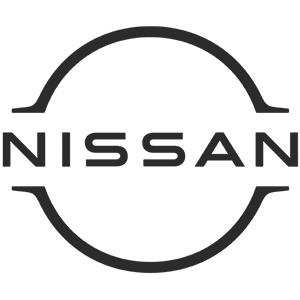Safety Ratings Information
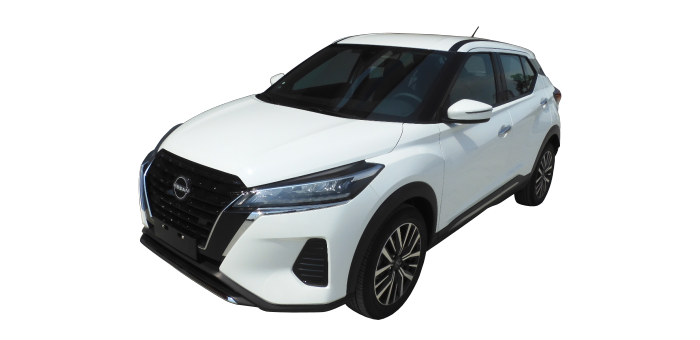
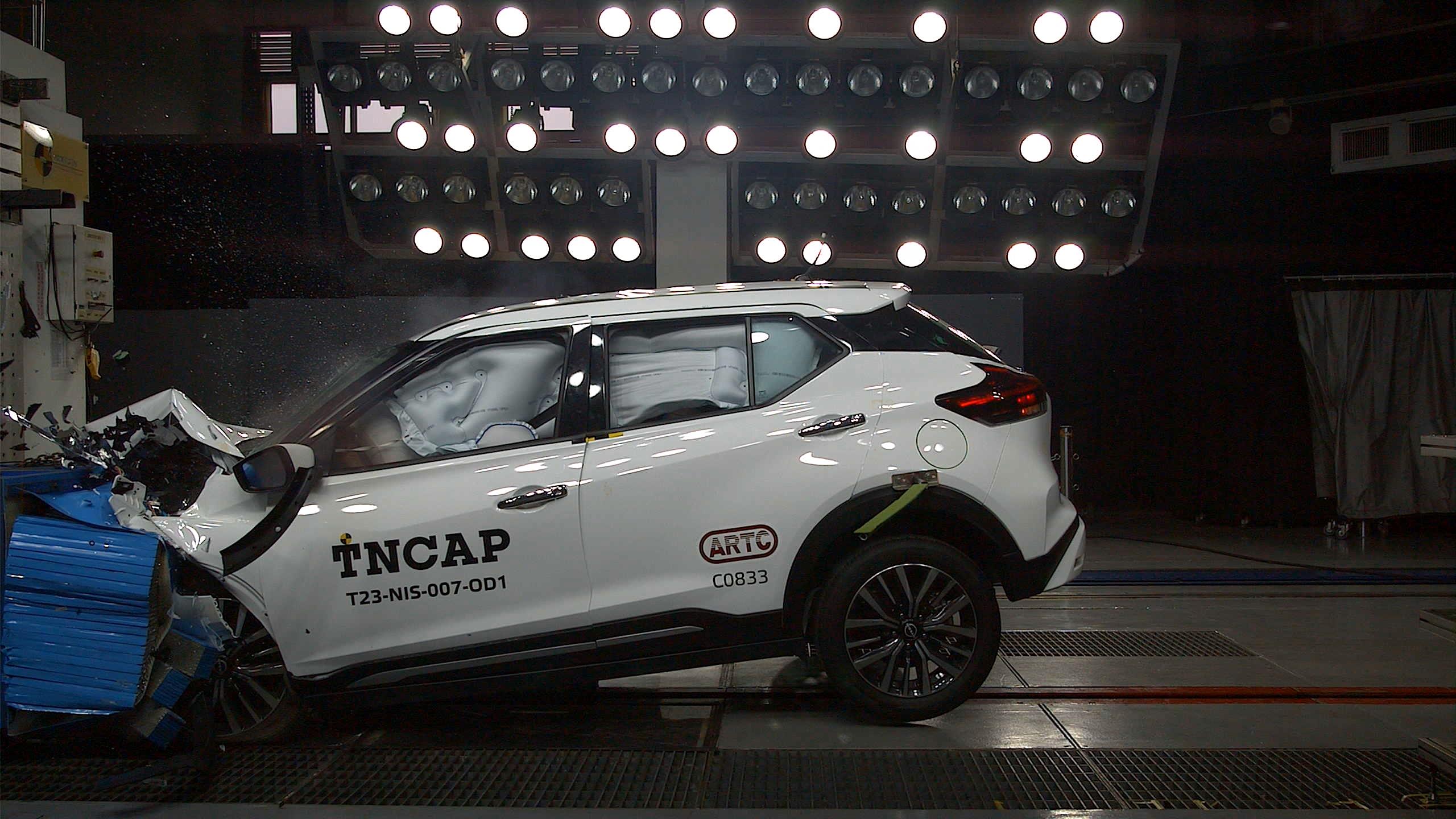
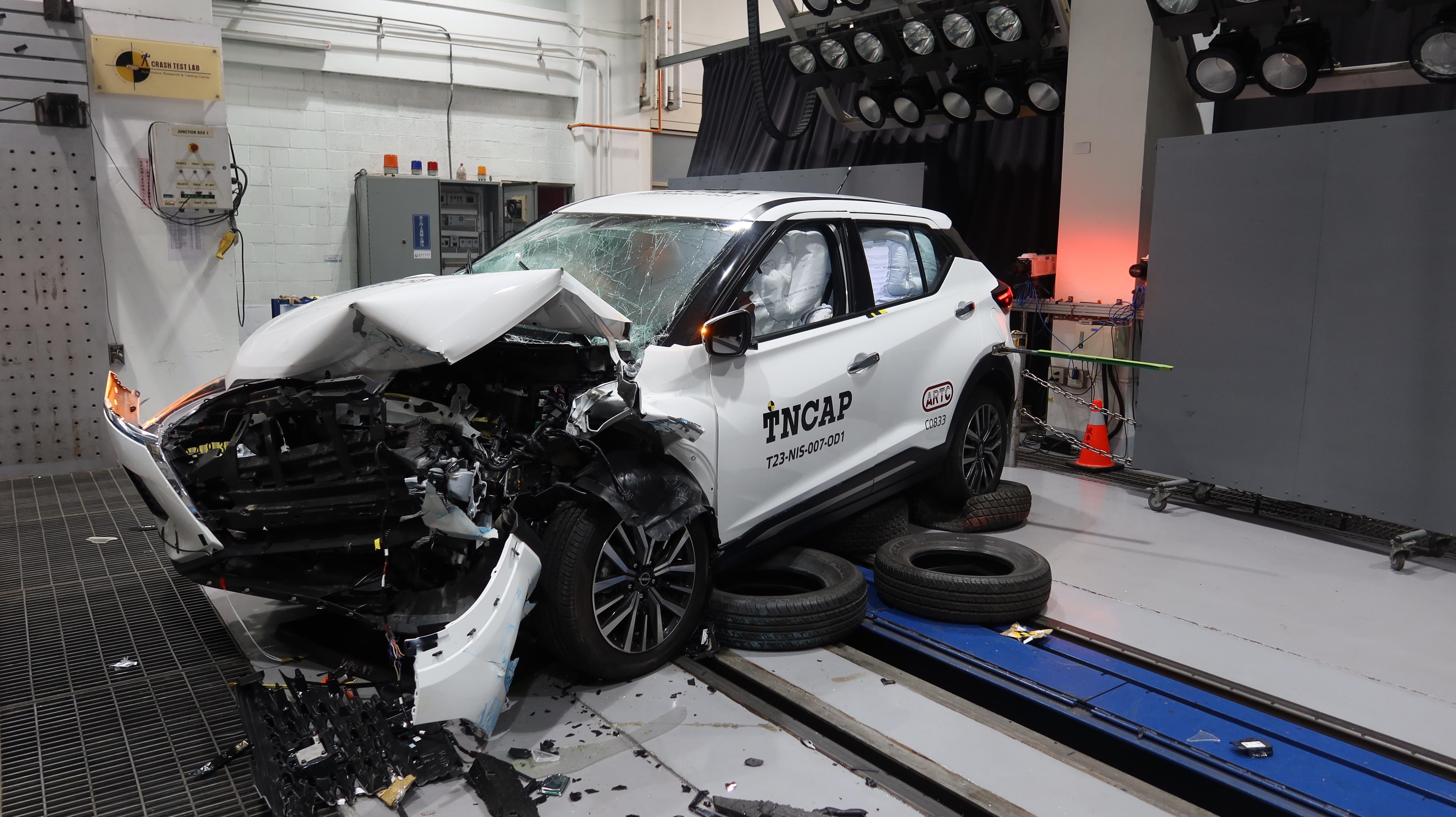
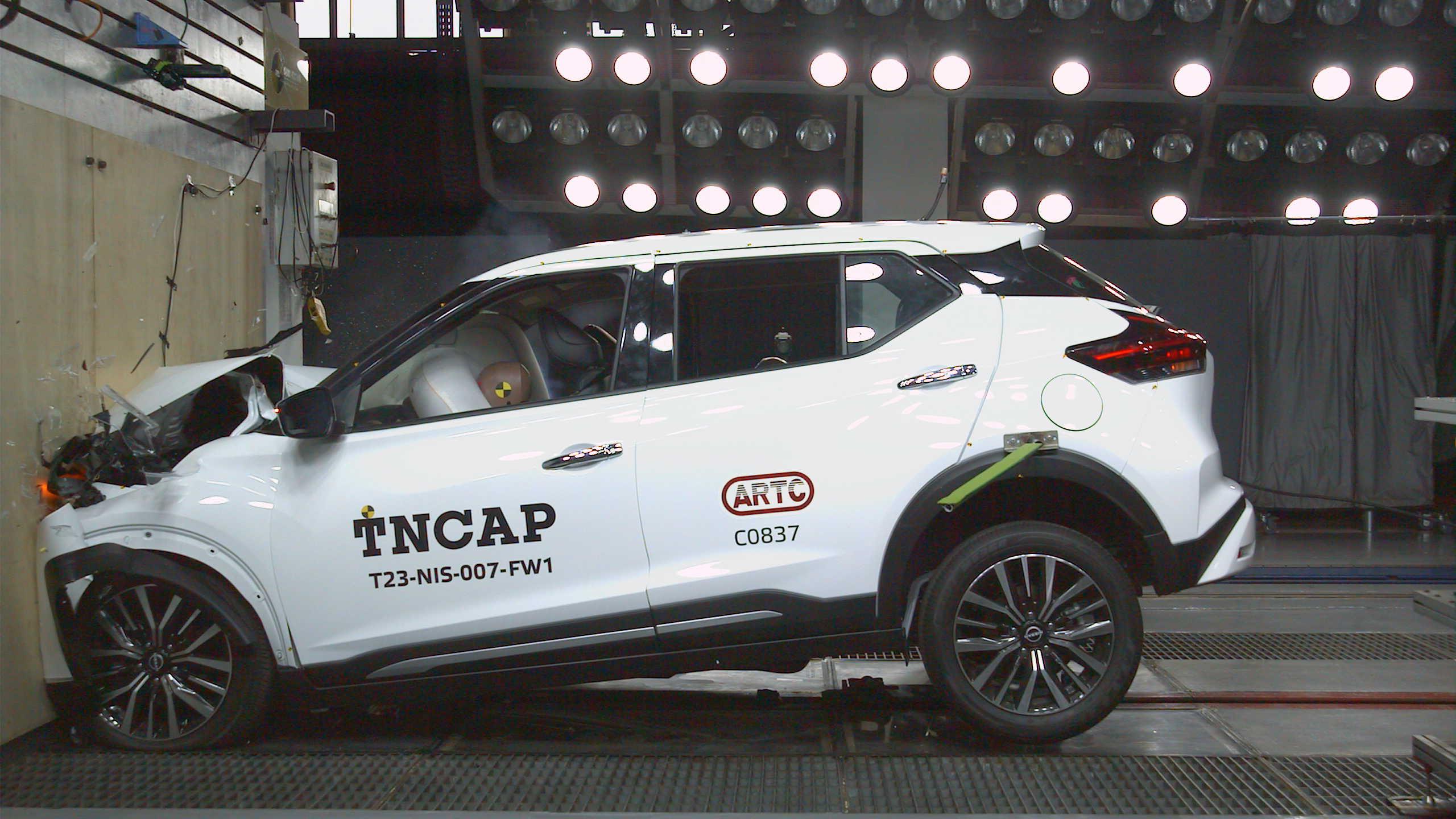
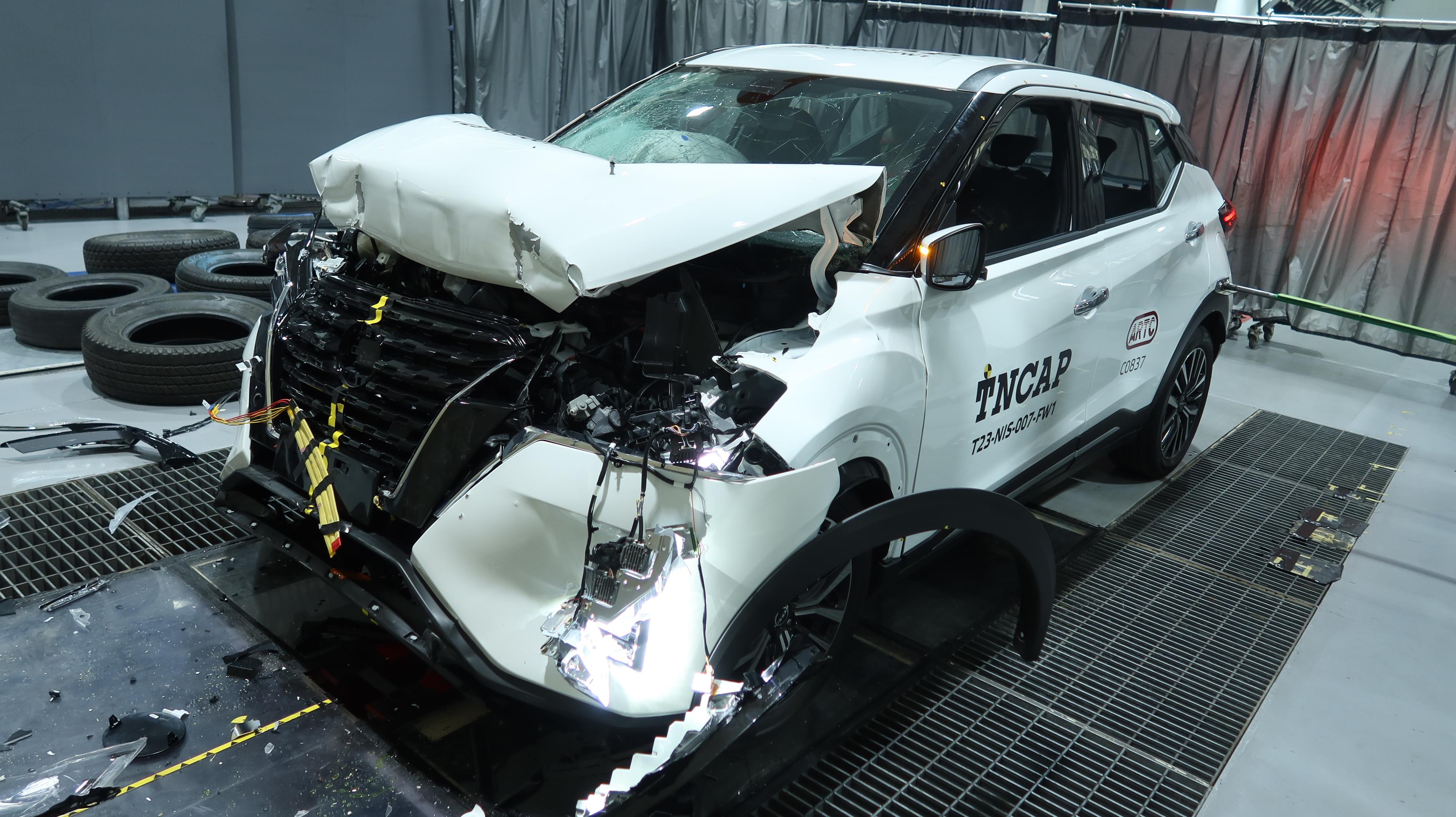
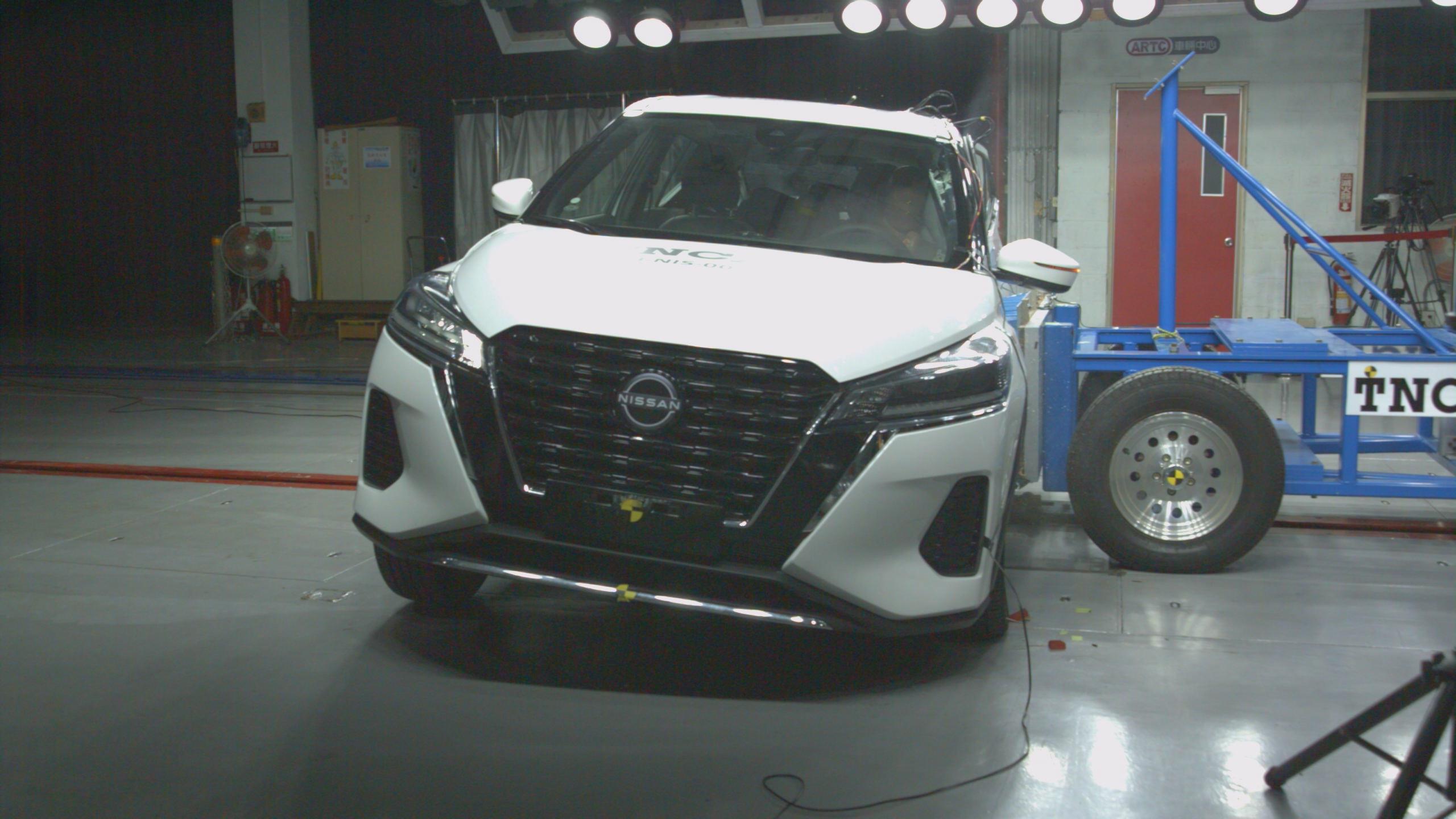
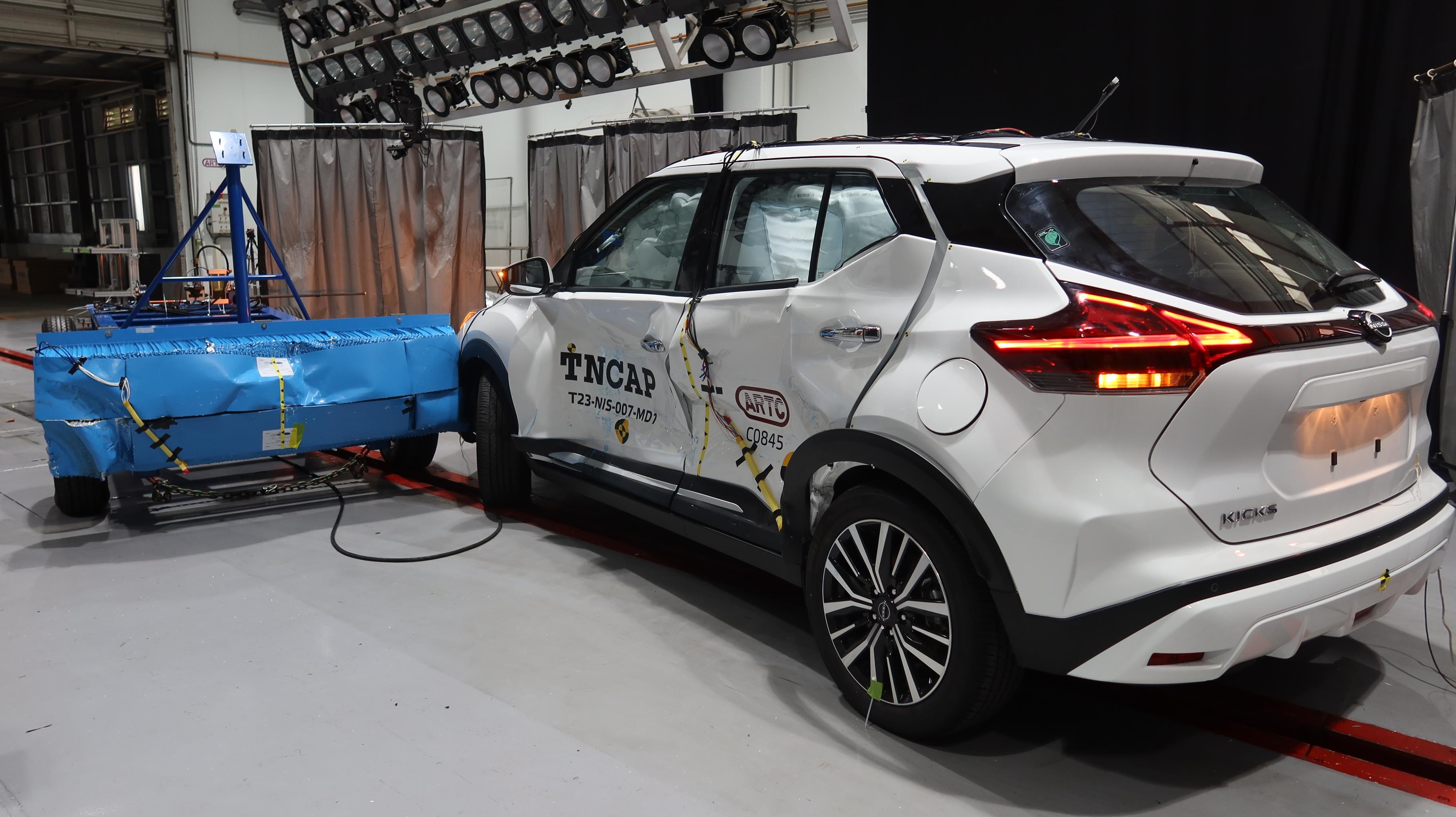
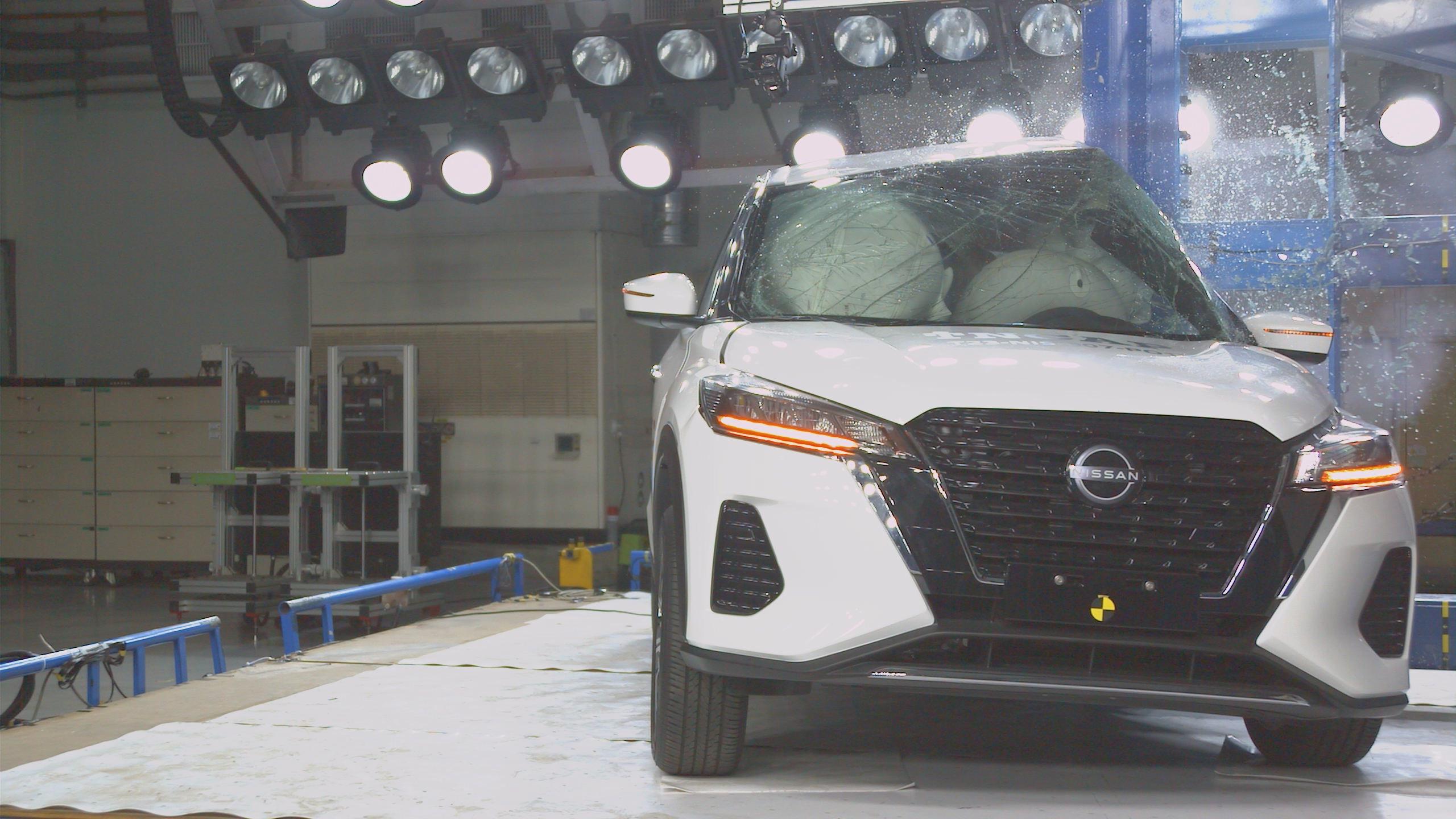
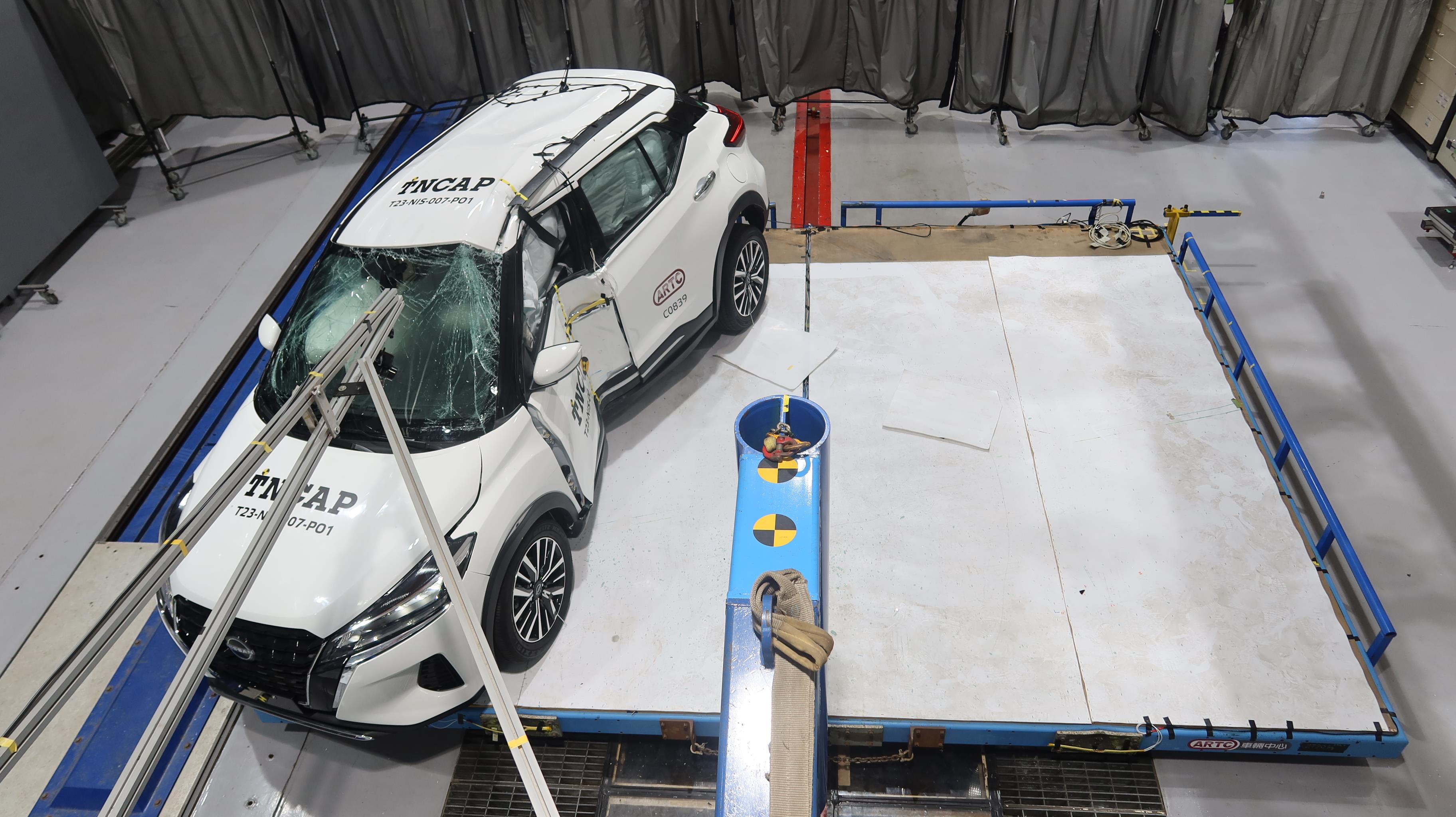
| Tested Model | NISSAN KICKS |
|---|---|
| Body Type | 5 Door Hatchback |
| Year Of Publication | 2023 |
| Kerb Weight | 1194 kg |
| VIN From Which Rating Applies | Reference Rating Validity |
| Driver | 1st row passenger | 2nd row outboard | 2nd row center | |
|---|---|---|---|---|
| FRONTAL CRASH PROTECTION | ||||
| Front Airbag | ||||
| Belt Pretensioner | ||||
| Belt Loadlimiter | ||||
| Knee Airbag | ||||
| LATERAL CRASH PROTECTION | ||||
| Side Head Airbag | ||||
| Side Chest Airbag | ||||
| Side Pelvis Airbag | ||||
| CHILD PROTECTION | ||||
| ISOFIX | ||||
| Integrated Child Seat | ||||
| Airbag cut-off switch | ||||
| SAFETY ASSIST | ||||
| Seatbelt Reminder | ||||
| OTHER SAFETY SYSTEMS | ||||
| Active Bonnet | ||||
| AEB Pedestrian | ||||
| AEB City | ||||
| AEB Interurban | ||||
| Speed Assistance | ||||
| Lane Assist System | ||||
| Blind Spot Monitoring | ||||
|
Note: Other equipment may be available on the vehicle but was not considered in the test year.
|
||||
Variants of Model Range
| Item | Model Name | Body Type | Engine | Drivetrain | Rating Applies |
|---|---|---|---|---|---|
| 1 | 卓越版(受驗車款) | 5 Door Hatchback | 1598c.c.汽油 | 4X2 | |
| 2 | 旗艦版 | 5 Door Hatchback | 1598c.c.汽油 | 4X2 |
- Applicable
- Not Applicable
Tested variant
| Name of Commercial Vehicle Model | 卓越版 |
|---|---|
| Date of Purchase | 2023-05 |
| Date of Production | 2023-03 ~ 2023-05 |
| Maker | Taiwan |
Adult Occupant
| System Name | IEB防追撞緊急煞車系統 |
|---|---|
| Type | Auto-Brake |
| Operational From | AEB 10 km/h |
| Additional Information | Default on for every journey(Preconditions: Pass) Minimum requirements to turn off AEB(Scoring Conditions: Pass) |
After NISSAN KICKS model were conducted four TNCAP impact tests, the results are as follows:
1.For “Offset Deformable Barrier Frontal Impact Tests”, the driver and passenger have "Good " or "Adequate" protection in body parts.
2.For “Full Width Frontal Impact Tests”, the driver has "Good" protection in body parts. However, the dummy at rear seat was not effectively restrained during the test, causing the pelvis slipped under the lap section of the seatbelt, also known as submarining, and therefore the score for this parts were deducted and rated as “poor” protection.
3.For “Side Impact Mobile Deformable Barrier Tests”, all important body parts have "Good" protection and get full points.
4.Under the more severe test conditions of the “Oblique Pole Side Impact Tests”, the chest was rated as "Marginal" protection. Other important body parts have "Good" protection.
In the front seat and rear seat whiplash tests, the front seat and rear seat have "Marginal" protection for the occupant's neck.
This vehicle model has a standard-fit autonomous emergency braking system, which performed well with collisions avoided in all City test scenarios. Furthermore, whiplash performance of front seat does not reach "Good" protection. Therefore, the AEB City system was not awarded points.
Child Occupant
Restraint for 6 year old child:Britax Römer KIDFIX i-SIZE
Restraint for 10 year old child:GRACO Junior Maxi
| 2nd row outboard | 2nd row center | 3th row outboard | 3th row center | |
|---|---|---|---|---|
| ISOFIX | ||||
| i-Size | ||||
| Integrated Child Protect | ||||
| Bag Release | ||||
- Fitted to the vehicle as standard
- Not fitted to the test vehicle but available as option
- Not Available
- Not Applicable
- Install without problem
- Install with care
- Safety critical problem
- Installation not allowed
| SEAT POSITION | ||||||
|---|---|---|---|---|---|---|
| 2ND ROW | 3TH ROW | |||||
| Left | Centre | Right | Left | Centre | Right | |
| Nuna PRYM(後向) (i-Size) | ||||||
| Nuna PRYM(前向) (i-Size) | ||||||
| Nuna REBL plus (i-Size) | ||||||
| Chicco Auto-Fix Fast手提汽座 (ISOFIX) | ||||||
| Nuna REBL plus (ISOFIX) | ||||||
| Chicco Seat 4 Fix Isofix安全汽座 (ISOFIX) | ||||||
| TOYOTA/LEXUS JUNIOR SEAT2 (ISOFIX) | ||||||
| ABC design GmbH Risus (Seat Belt) | ||||||
| Nuna PIPA lite 提籃+底座 (Seat Belt) | ||||||
| Chicco Eletta寶貝舒適全歲段安全汽座 (Seat Belt) | ||||||
| PERO Luce90 (Seat Belt) | ||||||
- Install without problem
- Install with care
- Safety critical problem
- Installation not allowed
- Not Applicable
After NISSAN KICKS model were conducted “Offset Deformable Barrier Frontal Impact Tests”, the neck of the 10-year-old child dummy was rated as "Marginal" protection, and other important body parts of the child dummy in the car have "Good" or "Adequate" protection. After “Side Impact Mobile Deformable Barrier Tests”, all important body parts have "Good" protection and get full points.
The car owner’s manual clearly records the information on child restraint system applicable to the rear seat. The rear seat can be correctly installed with all types of child restraint system (universal, ISOFIX and i-Size). Vehicle manufacturer recommends suitable child restraint system information for different age groups. Besides, the vehicle is equipped with the function of installing i-Size child restraint system on the left and right seats of the second row with i-Size labels, it could also accommodate larger rear-facing child restraint system.
Pedestrian
| System Name | P-IEB行人防追撞緊急煞車系統 |
|---|---|
| Type | Auto-Brake with Forward Collision Warning |
| Operational From | 10 km / h |
| Additional Information | Default on for every journey(Preconditions: Pass) Minimum requirements to turn off AEB/FCW(Scoring Conditions: Pass) Audiovisual warning needs loud and clear and to be issued at least 1.2 seconds TTC. (Scoring Conditions: Pass) Operates in low ambient light(Scoring Conditions: Pass) |
| Avoidance | Mitigation | |
|---|---|---|
| Running Adult crossing from Farside | Crash avoided up to 45 Km/h | Impact mitigated up to 50 Km/h |
| Walking Adult crossing from Nearside -25% | Crash avoided up to 60 Km/h | |
| Walking Adult crossing from Nearside -75% | Crash avoided up to 60 Km/h | |
| Running Child from behind parked vehicles | Crash avoided up to 35 Km/h | Impact mitigated up to 45 Km/h |
- Not Applicable
After NISSAN KICKS model were conducted headform impact tests of pedestrian protection tests, as the headform impacts at vehicle's A-pillar and its adjacent areas of the windshield, the head protection performance was rated as "Weak" or " Poor ", and the rest of the hood has rated as "Good" or "Adequate" protection. After the pelvis impact test and leg impact test, the front bumper of the vehicle was rated as "Good" protection on the pedestrian's legs. However since part of front structure of vehicle caused larger impact force on the femur and pelvis of pedestrian, therefore it was rated as "Marginal" protection.
This vehicle model has a standard-fit autonomous emergency braking system. In vulnerable road user test scenarios, all the functions of human machine interface meet the protocol and 4 test results are as below:
1.Car-to-VRU Farside Adult (50%) tests, collisions occurred at 50km/h, but the system can mitigate the degree of injury. However, the system cannot effectively mitigate the degree of injury between 55km/h to 60km/h.
2.Car-to-VRU Nearside Adult (25%) tests, the system performed well to avoid all collisions between 20km/h to 60km/h.
3.Car-to-VRU Nearside Adult (75%) tests, the system performed well to avoid all collisions between 20km/h to 60km/h.
4.Car-to-VRU Nearside Child (50%) tests, collisions occurred between 40km/h to 45km/h, but the system can mitigate the degree of injury. However, the system cannot effectively mitigate the degree of injury between 50km/h to 60km/h.
Safety Assist
| Applies To | All seats | ||
|---|---|---|---|
| Warning | Driver Seat | Front Passenger(s) | Rear Passenger(s) |
| Visual | |||
| Audible | |||
- Pass
- Fail
- Not available
| System Name | LDW車道偏離警示系統 |
|---|---|
| Type | Lane Departure Warning |
| Operational From | LDW 70 km/h |
| Warning | Visual and Haptic |
| Additional Information | Default on for every journey(Scoring Conditions: Fail) Haptic warning(Scoring Conditions: Pass) Blind spot monitoring(Scoring Conditions: Fail) |
| Performance | |
|---|---|
| LKA confirmation test | Fail |
| LDW confirmation test | Pass |
| System Name | IEB防追撞緊急煞車系統 |
|---|---|
| Type | Forward Collision Warning with Auto-Brake |
| Operational From | AEB 10 km/h;FCW 10 km/h |
| Additional Information | Default on for every journey(Preconditions: Pass) Audiovisual warning(Preconditions: Pass) Minimum requirements to turn off AEB/FCW(Scoring Conditions: Pass) Supplementary warning(Scoring Conditions: Pass) Seatbelt activation(Scoring Conditions:Fail) |
| Autobrake Function Only | Driver reacts to warning | |
|---|---|---|
| Operational speed | 10-80 km/h | 10-80 km/h |
| Approaching a stationary car | See AEB city | Crash avoided up to 55 km/h. |
| Approaching a slower moving car | Crash avoided up to 70 km/h. | Crash avoided up to 70 km/h. |
| Following a car at short distance | ||
|---|---|---|
| Car in front brakes gently | Mitigation | Avoidance |
| Car in front brakes harshly | Mitigation | Mitigation |
| Following a car at long distance | ||
|---|---|---|
| Car in front brakes gently | Avoidance | Avoidance |
| Car in front brakes harshly | Mitigation | Mitigation |
- Not Applicable
NISSAN KICKS is not equipped with a speed assist system, and therefore no points were awarded for this item.
Both the front and rear seats are equipped with a standard-fit seatbelt reminder, the system can detect occupant of front passenger seat, which effectively alerts driver through audiovisual warnings. Therefore, the system gets full points.
Lane support system only has lane departure warning function and it doesn’t have lane keeping assist function. When the vehicle drifts from the driving lane, the lane departure warning system can alert the driver to correct the driving direction to the original driving path. However, part of the functions of human machine interface do not meet the protocol.
This vehicle model is equipped with a standard-fit autonomous emergency braking system, which is rated as "Good" protection in high-speed performance tests. However, part of the functions of human machine interface do not meet the protocol. 3 test results are as below:
1.Car-to-Car Rear Stationary (CCRs) of FCW tests, collision occurred between 60km/h to 70km/h, but the system can mitigate the degree of injury. However, the system cannot effectively mitigate the degree of injury between 75km/h to 80km/h.
2.Car-to-Car Rear Moving (CCRm) of FCW tests, collision occurred between 75km/h to 80km/h, but the system can mitigate the degree of injury. For AEB test scenario, the system performed well to avoid all collisions.
3.Car-to-Car Rear Braking (CCRb) of FCW tests, collision occurred at 12m and 40m headway with decelerations of 6m/s², but the system can mitigate the degree of injury. For AEB test scenario, collision occurred at 12m headway with deceleration of 2 m/s², 6m/s² and at 40m headway with deceleration of 6m/s², but the system can mitigate the degree of injury.
